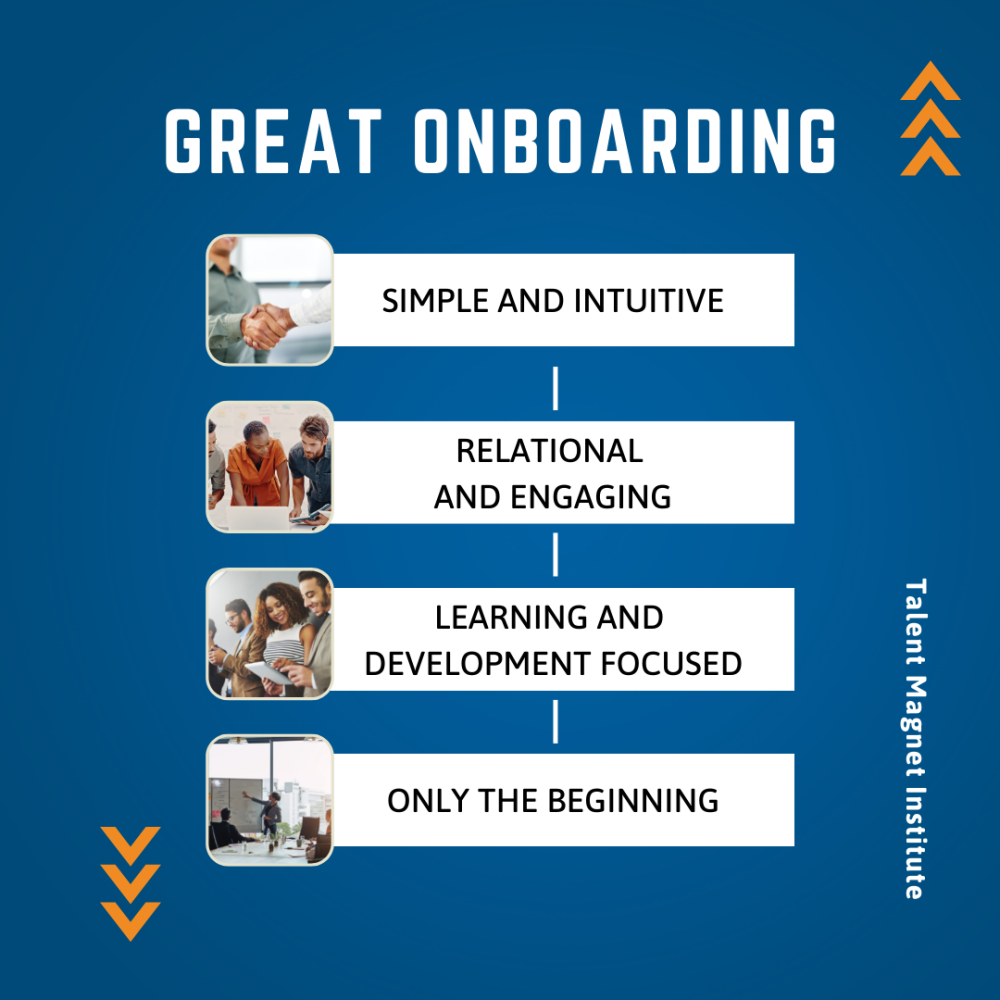The Key to Avoiding Quiet Quitting: Quality Onboarding
Jan 30, 2023
Employee Onboarding is Crucial for Retention
"Great employee onboarding can improve employee retention by 82%" - The Brandon Hall Group Gallup has some discouraging statistics when it comes to onboarding. They found that only 12% of companies surveyed say they do a good job with onboarding new employees. That leaves 88% who feel their onboarding process is less than ideal (if they even have a process at all).
For those companies that do have a process, they often struggle to consistently apply that process to all new hires, limiting their effectiveness. When we don't onboard well, we fill our companies with unprepared, confused, and frustrated employees who are less productive and open to communication with leadership. If you read this newsletter two weeks ago, you know that this kind of employee is very likely to leave his/her position in the next 12 months.
What is Quite Quitting?
"Quiet quitting" is a term that refers to the act of leaving a job or situation without making a big fuss or causing a scene. It involves resigning or ending a relationship with dignity and grace, without causing any unnecessary conflict or drama.
Recent Shifts in the Job Market
The shift towards "quiet quitting" in the workforce can be attributed to a number of factors, including changes in attitudes towards work-life balance and mental health. Many employees today place a greater emphasis on achieving a healthy work-life balance, which means prioritizing time for family, hobbies, and self-care. As a result, employees may be more likely to leave a job or situation that is causing excessive stress or interfering with their ability to maintain a healthy balance.
Mental Health
In addition, mental health concerns have become increasingly prominent in the workplace. More employers are recognizing the importance of creating a supportive and inclusive work environment that promotes mental wellness, and employees are increasingly prioritizing their mental health needs when making career decisions.
Professional Development
Another factor driving the trend towards quiet quitting is a growing emphasis on professional development and career fulfillment. Many employees today are seeking opportunities for growth, advancement, and fulfillment in their careers, and may be willing to leave a job or situation that is not providing these opportunities. They may also be more willing to take risks and pursue new career paths, which can require leaving their current job in a peaceful and professional manner.
Work-life Balance is a Top Priority
Overall, the shift towards quiet quitting reflects a growing awareness of the importance of balancing personal and professional goals, as well as the need to prioritize mental health and career fulfillment. As these attitudes continue to evolve, we may see more individuals choosing to leave jobs or situations with grace and professionalism, in order to pursue their goals and maintain positive relationships with colleagues and supervisors.
The Time to Revamp Your Onboarding is Now
Obviously, onboarding is important, but what we often miss is the connection to retention. In August 2021, Gallup reported, "70% of employees who had exceptional onboarding experiences say they have the best possible job."
Great onboarding leads to satisfied employees and satisfied employees are far less likely to leave for another job. So how do we do this well? This month we are going to take a closer look at the quiet quitting phenomenon and the different ways to mitigate this issue.
Questions to Ask Yourself About Your Onboarding
Onboarding well is one of those ways, so it's time we onboard to the best of our ability. To get started, answer these three questions:
On a scale of 1-10, how would you rate your current onboarding process?
On a scale of 1-10 how well do you live out your company values during your onboarding process?
Is your onboarding process more relational or procedural?

How did you come out after ranking yourself? If you find you want to make some changes, we'd love to chat more with you. Head here to book a call!

